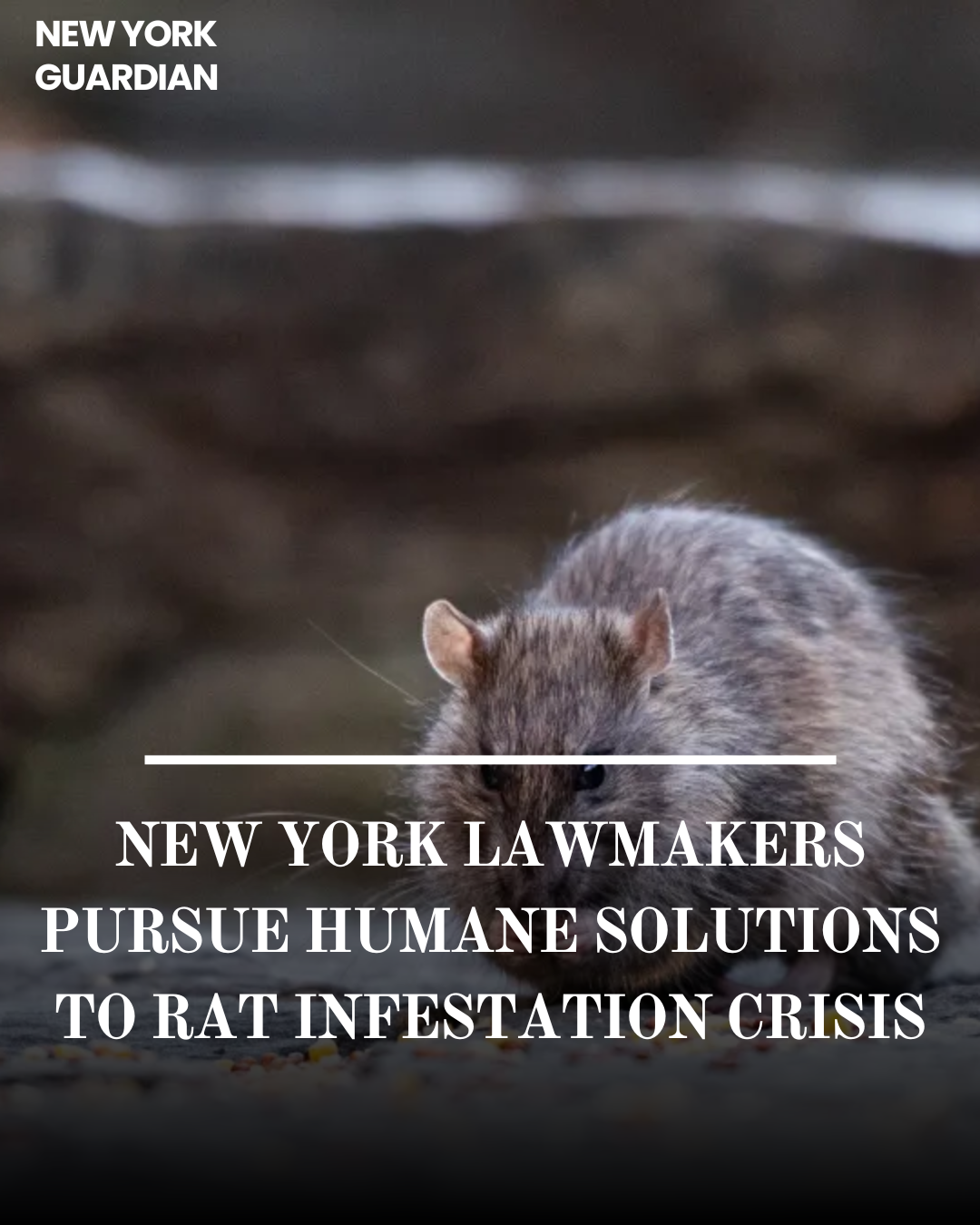Lawmakers in New York are proposing innovative measures to combat the longstanding issue of rat infestation.
They advocate for humane alternatives to traditional methods such as poison and glue traps.
Policymakers aim to address the rat population while minimizing animal and environmental injury by focusing on contraception and ethical pest control.
Proposal for Rat Contraceptives:
City Council Member Shaun Abreu introduces a city ordinance to establish a pilot program utilizing rat contraceptives, marking a departure from lethal chemicals.
The contraceptive, known as ContraPest, offers a humane approach by targeting ovarian function in female rats and disrupting sperm cell production in males, thereby curbing reproduction rates.
Opposition to Lethal Methods:
Concerns over the ethical implications of current extermination practices prompt calls for change.
Pest management professionals advocate for humane methods such as carbon monoxide euthanasia, emphasizing the need to prioritize animal welfare in pest control strategies.
Legislative Efforts:
Lawmakers in Albany are considering statewide measures, including a proposed ban on glue traps, to address the inhumane treatment of rodents.
Proponents argue for adopting more effective and ethical approaches to rat management, echoing sentiments shared by animal rights advocates.
Urban Initiatives and Rat Mitigation:
Urban initiatives aim to curb infestations through targeted interventions in response to escalating rat populations.
Mayor Eric Adams’ appointment of a “rat czar” underscores the city’s commitment to tackling the issue, while recent regulations mandate businesses to adopt rat-resistant waste disposal methods.
Long-term Management Strategies:
Recognizing the resilience of rats, experts acknowledge the need for sustainable, long-term management strategies.
While eradication may be unattainable, effective management practices can mitigate the impact of infestations and promote coexistence in urban environments.





















